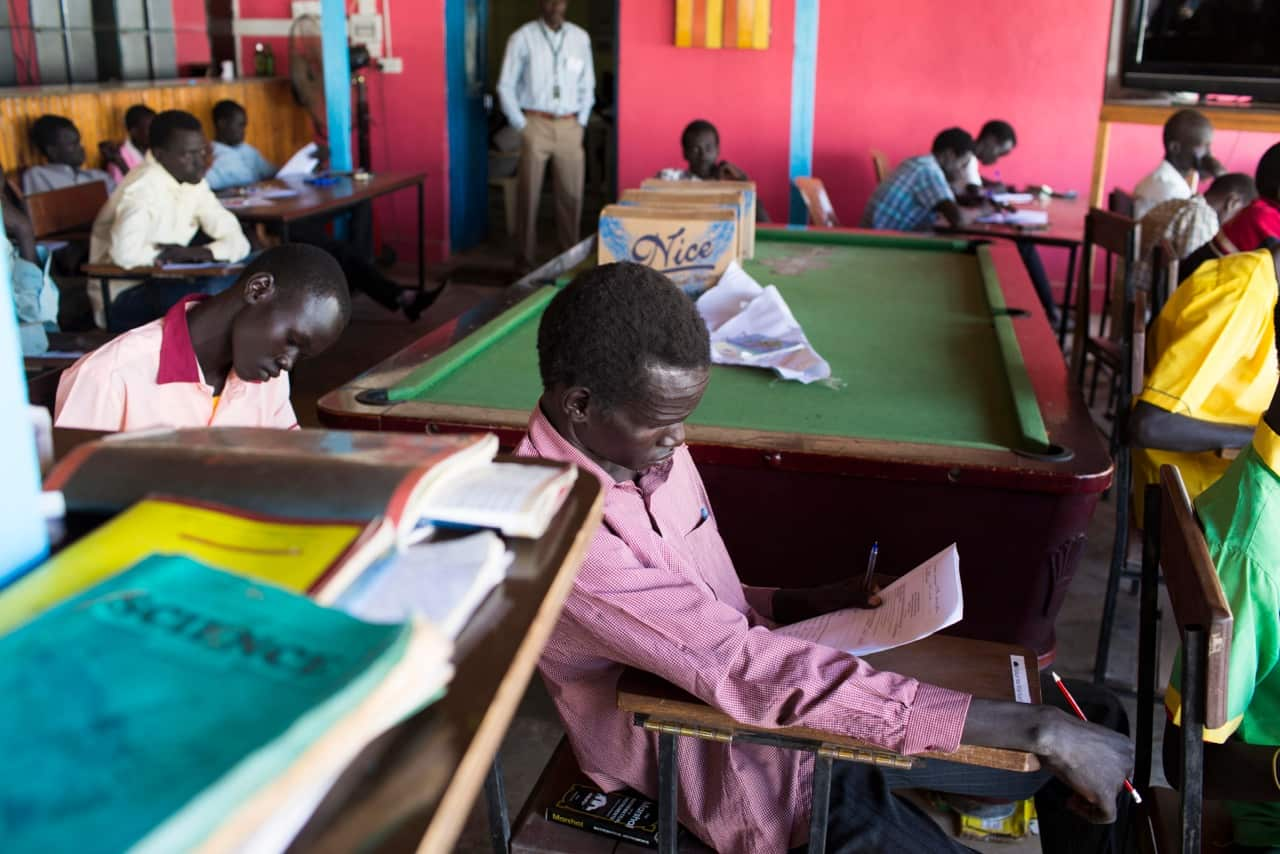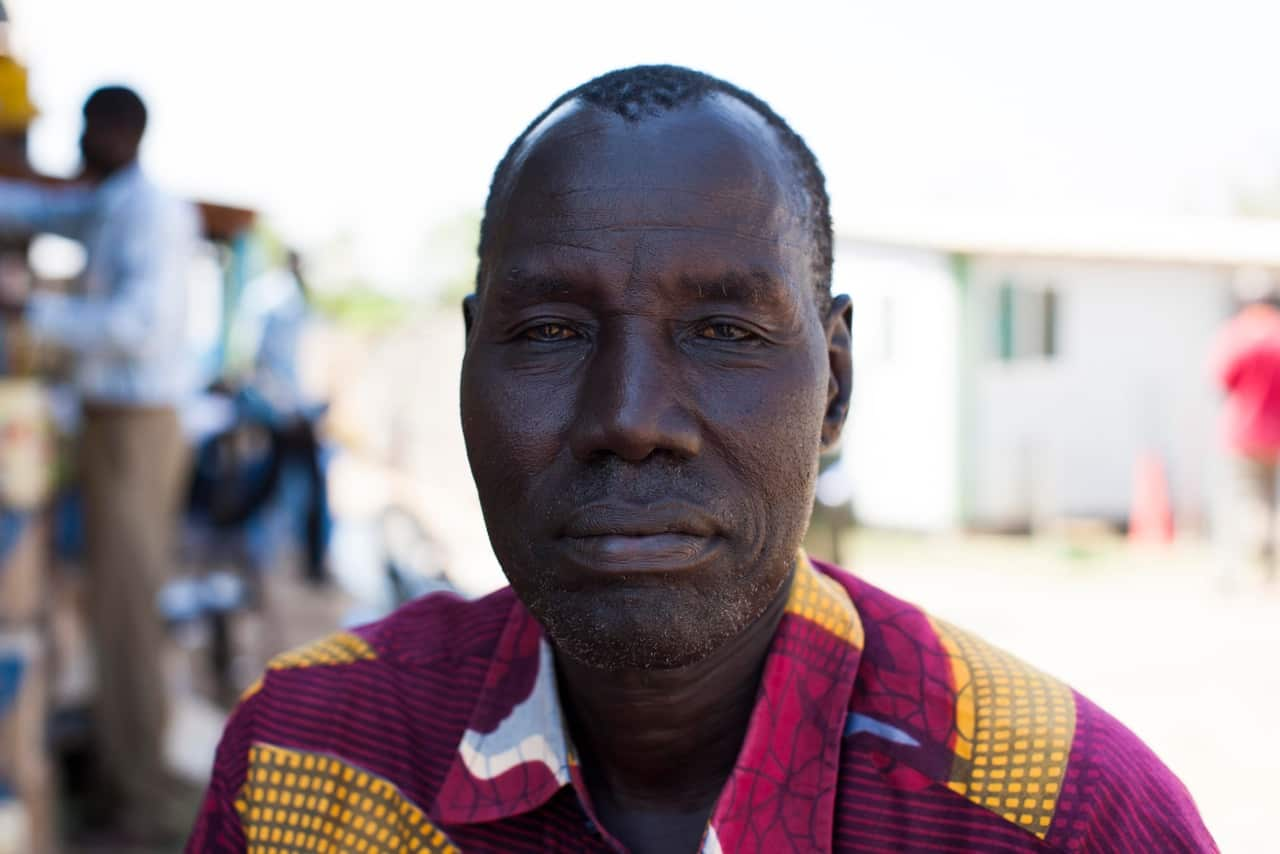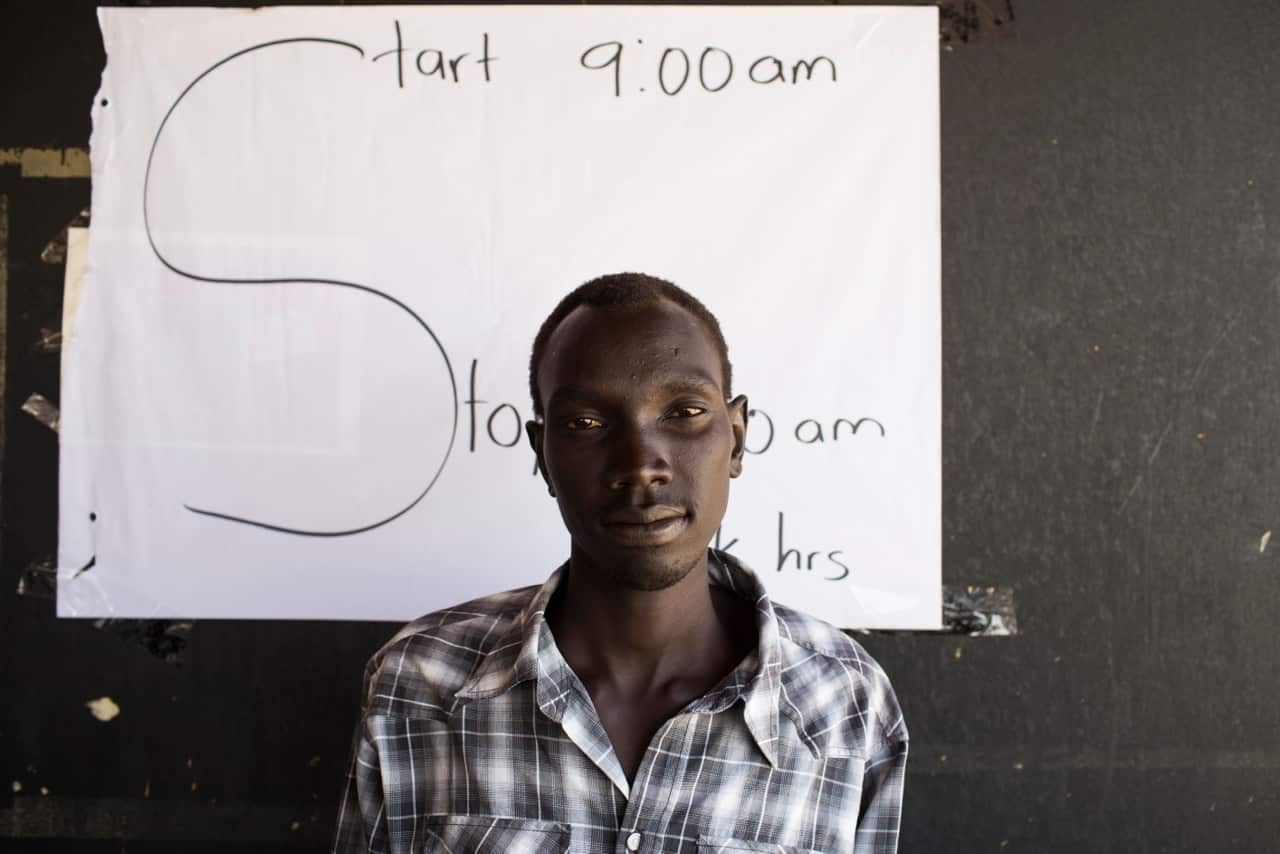For close to 400 South Sudanese students, the outbreak of war was no excuse to skip school tests.
On Monday students aged 14-48 years sat their primary school leaving exam in what is usually a watering hole for staff at the United Nations compound in the capital Juba.
While most kids would relish a way out of stressful exams, these students were elated to have a chance to finish their studies. South Sudan, the world’s newest nation after gaining independence in July 2011, has been torn apart once again by nearly a month of fighting, this time amongst political rivals and their respective tribes.
South Sudan, the world’s newest nation after gaining independence in July 2011, has been torn apart once again by nearly a month of fighting, this time amongst political rivals and their respective tribes.

Despite conservative estimates of at least 1,000 dead and NGO International Crisis Group putting the figure closer to 10,000, life continues in the capital Juba.
And proving it is never too late to learn Michael Machar, 48 years, sat the same exam as his son Kueth Machar, 27, years.
Both are from the Nuer tribe that is the majority of 18,000 who feared attacks from the Dinka tribe and are now internally displaced people (IDP) camped inside the UN base in Juba.
Michael Machar said he was “very happy indeed to do the exam.”
“I want to go to secondary school,” he said. “I never had the chance because there were not many schools when I was born.” His son, Kueth Machar said it took him until he was 27 years old to sit the exam because when he was in the village outside Juba he worked with his family’s cattle.
His son, Kueth Machar said it took him until he was 27 years old to sit the exam because when he was in the village outside Juba he worked with his family’s cattle.

“I never went to school because I was in the village and there is no school. I ran cows. Now I want to do more study. No more cows,” he said.
Kueth wants to be a teacher and was happy his dad was by his side.
“It is hard to study in the UN camp it would be much easier at home,” he said.
“But I am happy because I sat the exams, the war is costly for us. But we will get the chance to leave the UN camp and improve our lives.” According to the United Nations, South Sudan’s adult literacy rate stands at 27 per cent and 70 per cent of children aged 6–17 years have never set foot in a classroom.
According to the United Nations, South Sudan’s adult literacy rate stands at 27 per cent and 70 per cent of children aged 6–17 years have never set foot in a classroom.

The completion rate in primary schools is less than 10 per cent, one of the lowest in the world. Gender equality is another issue, with only 33 per cent of girls in schools.
Simon Mphisa, UNICEF’s Chief of Education, said apart from fearing for their lives the outbreak of fighting in Juba on December 15 meant these young students’ study was disrupted and they could not sit the national exam.
“It is not a normal environment. The IDP camps where they are confined is not the best environment,” he said. “Now they have a chance to go to secondary school.”
Mphisa said most of the students’ age ranged from 14-21 years.
“There are very few schools that offer the full primary cycle, eight years of school, a lot do four or five years. So the opportunities to complete a full primary schooling is limited,” he said.
This means even less get a full education let alone make it to the country’s only university in Juba.
But one of the most difficult factors for education in South Sudan is the politicisation of language after seceding from Arabic speaking Sudan.
“The automatic switch to English (at independence) did not work out so well. I think now they are accommodating a transition because even among the teachers they don’t speak English,” he said
The political sentiment around the speaking English over Arabic is dying down, he said.
“At the last national conference on curriculum you can see there was a change. Two years ago it was just English but it is not working well in practice,” he said.
Share

